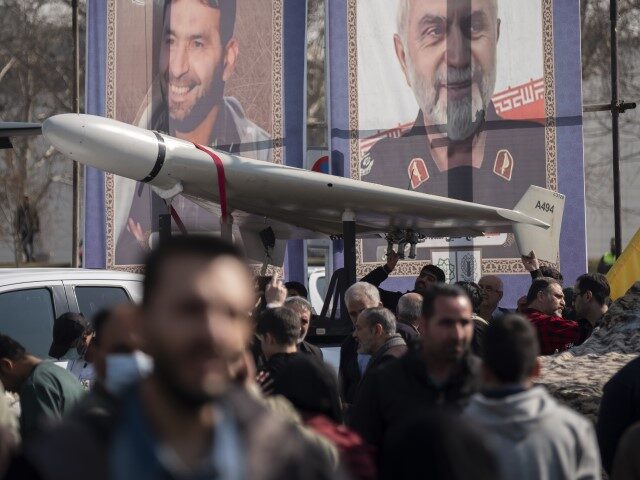Iranian state media reported on Wednesday that the Islamic Revolutionary Guard Corps (IRGC) has “taken delivery of sophisticated homegrown kamikaze and combat unmanned aerial vehicles (UAVs), featuring state-of-the-art technologies suitable for operations against enemy targets.”
According to Iran’s PressTV, IRGC commanders attended a ceremony on Tuesday to take possession of the latest Shahed-131 and Ababil-5 drones, upgraded versions of two designs that have helped Iran’s homegrown drone industry become a significant threat.
The Shahed drone is a “suicide” or “kamikaze” design, intended to fly an explosive payload to its target and then explode. Iran admitted in November 2022 it has supplied Russia with a large number of Shahed drones to attack Ukrainian targets. Iran also supplied Shahed models to the Houthi terrorists of Yemen, who have used them to attack commercial vessels in the Red Sea.
PressTV excitedly reported the Shahed-131 featured prominently in an exercise that simulated Iran using “precision strikes” to destroy an Israeli nuclear power plant.
The Ababil-5 drone, rolled out in April 2022, is an attack drone along the lines of the U.S.-made Predator UAV. The Iranian drone can carry up to six missiles or bombs and has an operating range of about 480 kilometers.
Iranian state media claimed in October 2023 that an Ababil-5 was able to shadow a U.S.-guided missile destroyer in the Indian Ocean, seemingly without being detected or interfered with. PressTV said the latest version of the Ababil drone can carry a heavier payload with its stronger wings, and has a smaller radar signature thanks to its retractable landing gear.
“Iranian military experts and engineers have in recent years made remarkable breakthroughs in manufacturing a broad range of indigenous equipment, making the armed forces self-sufficient,” PressTV gushed.
The U.S. Treasury Department imposed new sanctions in early February against Iran’s ballistic missile and UAV programs, particularly against Chinese firms accused of providing Iran with advanced electronic components.
“Iran’s continued proliferation of its advanced conventional weapons, including the UAVs and missiles that target U.S. soldiers, remains a critical threat to the stability of the region,” Under Secretary of the Treasury for Terrorism and Financial Intelligence Brian E. Nelson said when the sanctions were imposed.

COMMENTS
Please let us know if you're having issues with commenting.